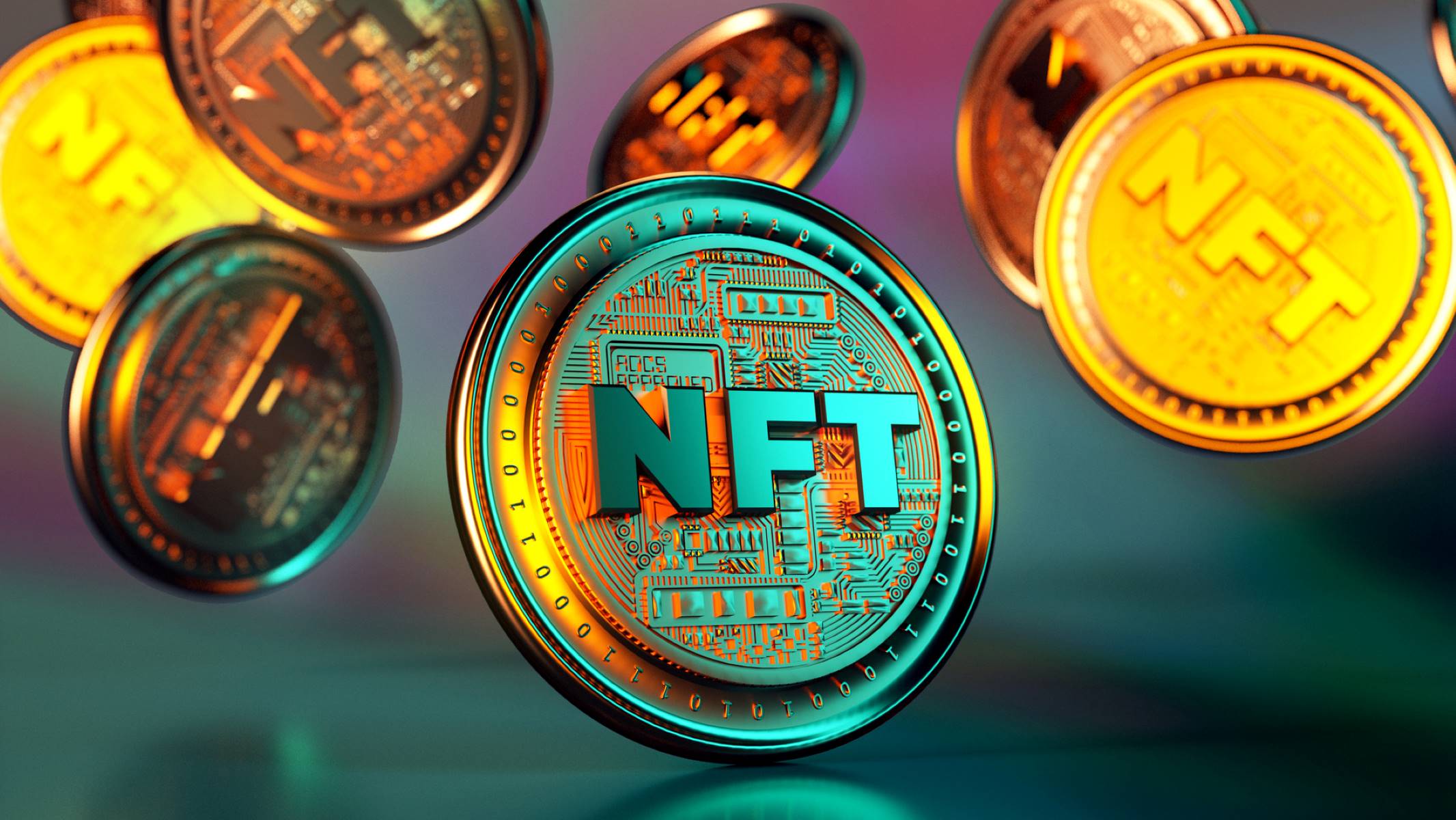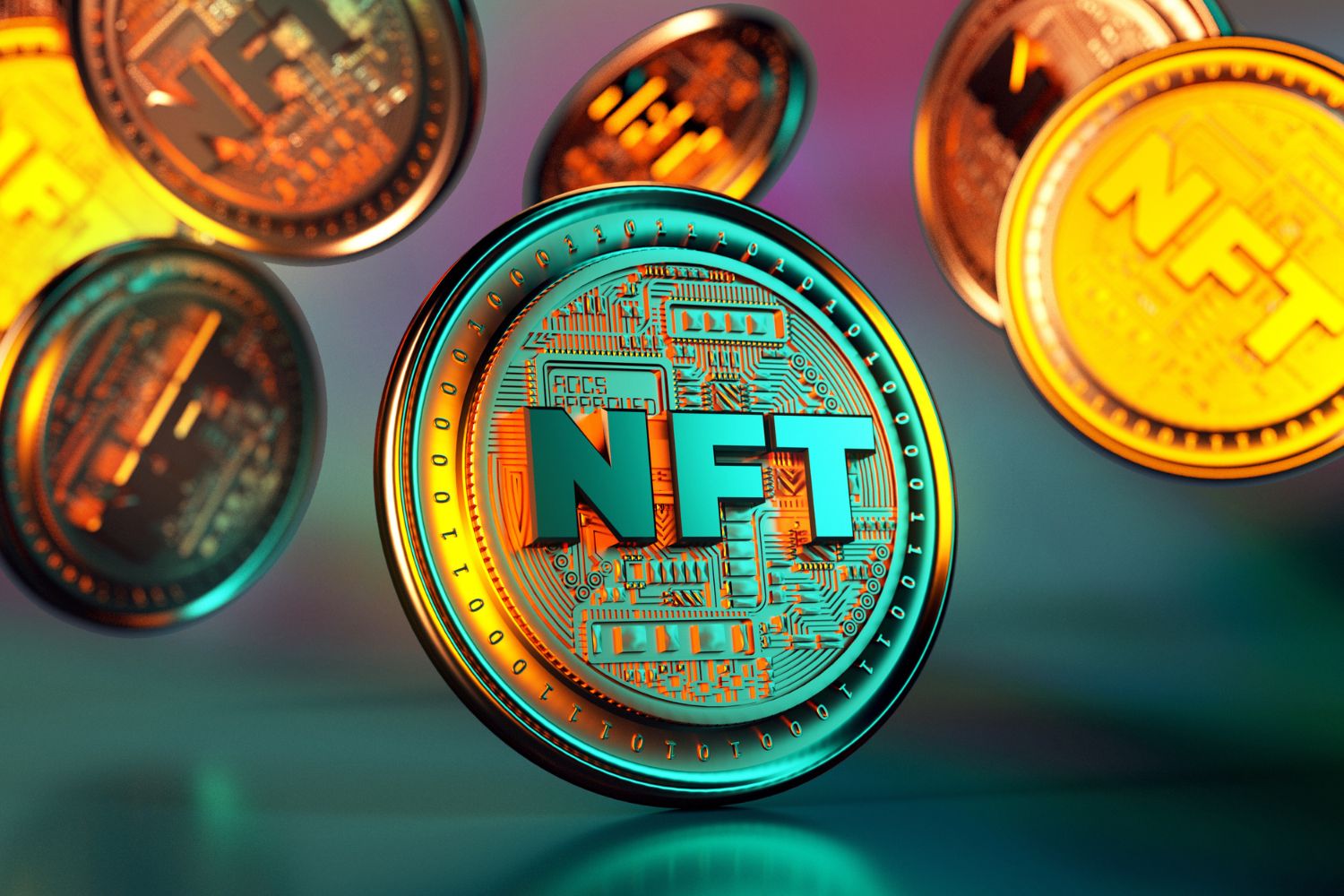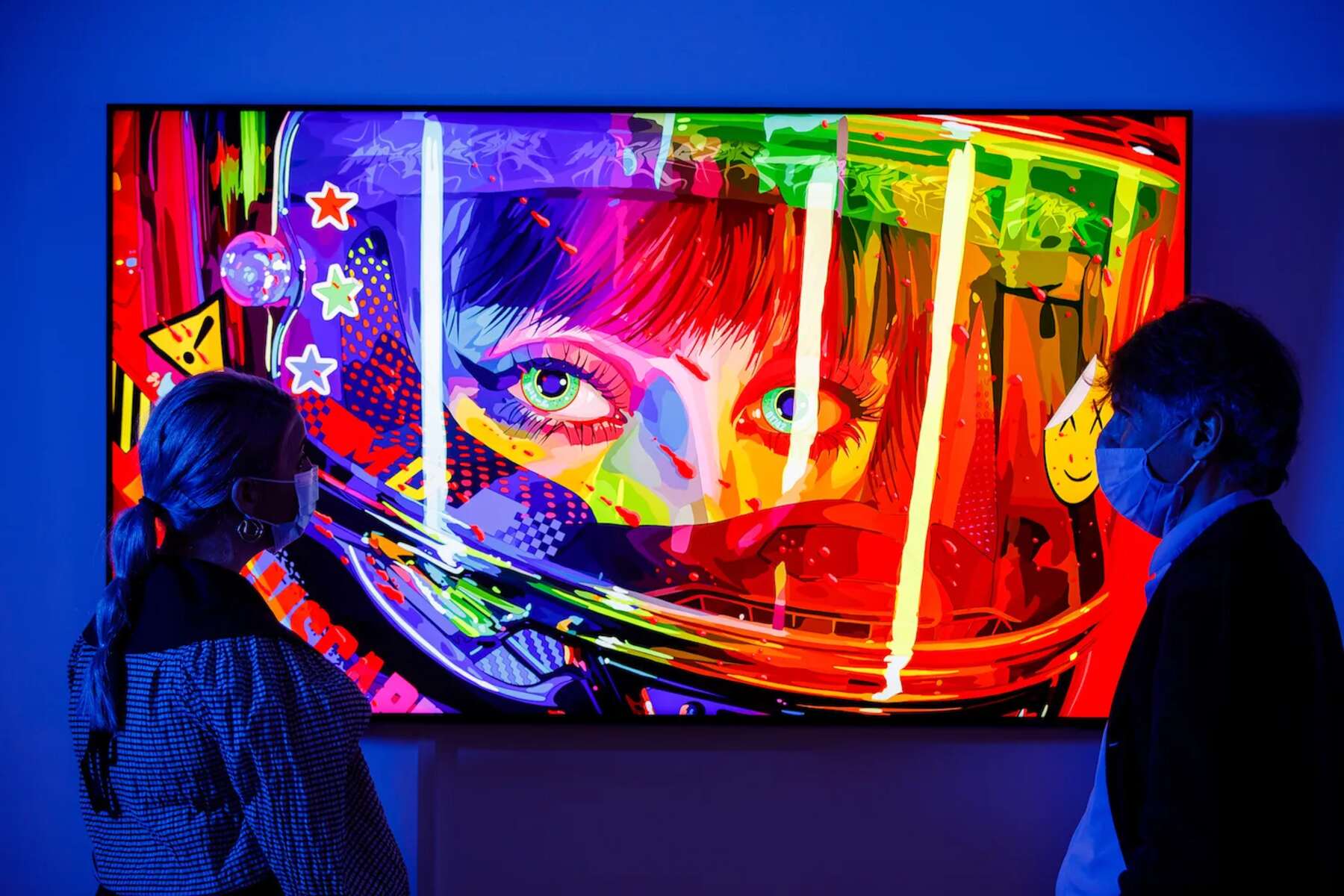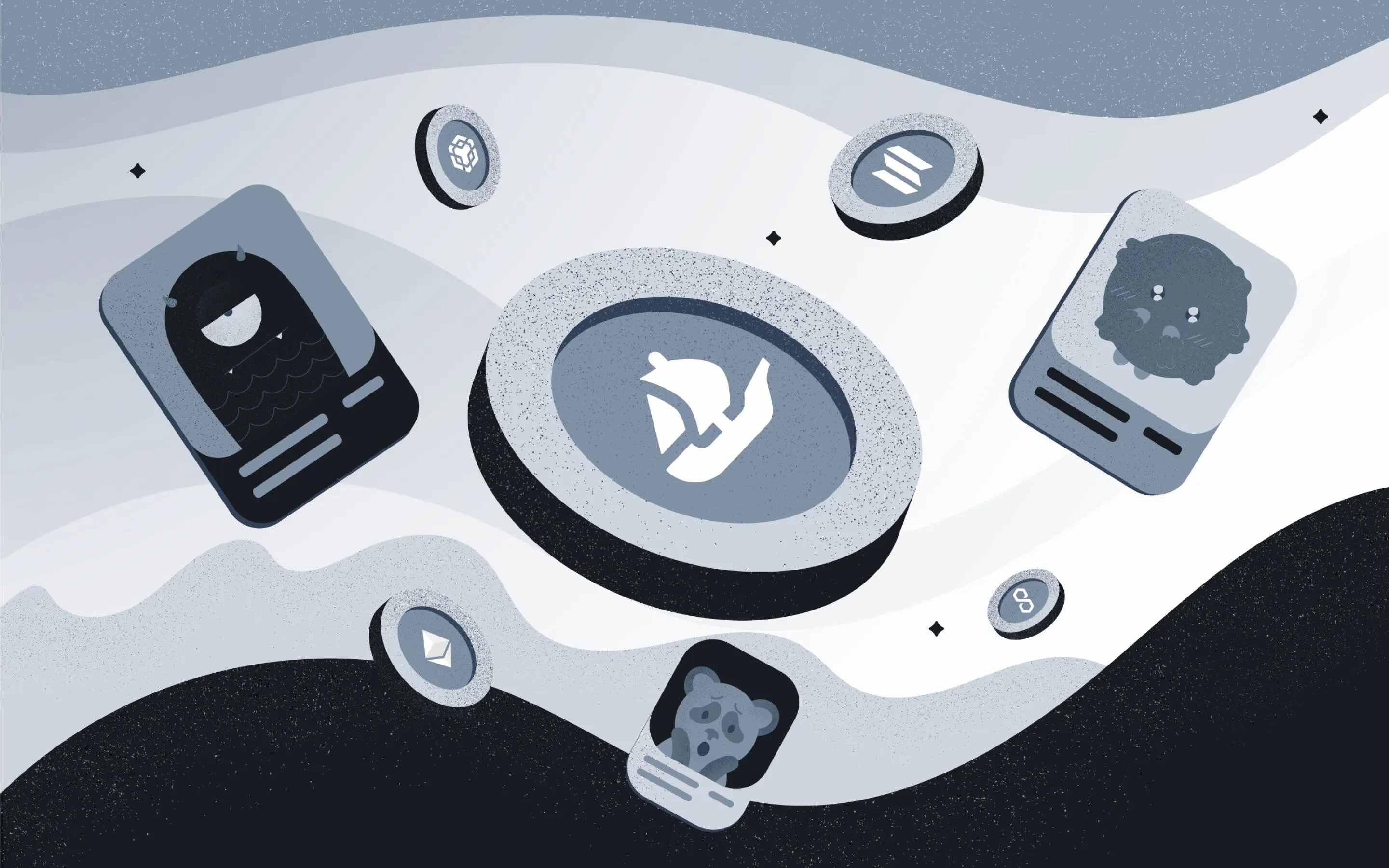Introduction
With the rise of digital art and the increasing interest in the blockchain technology, NFT tokens have quickly gained popularity in recent years. NFT, or non-fungible token, is a type of digital asset that is unique and cannot be replicated. It has revolutionized the way digital assets such as art, collectibles, and even virtual real estate are bought, sold, and owned.
Unlike cryptocurrencies such as Bitcoin or Ethereum, where each token is interchangeable, NFT tokens are one-of-a-kind and represent ownership of a specific item. This uniqueness and the ability to prove ownership through blockchain technology have made NFT tokens highly sought after by collectors and enthusiasts alike.
So, why would you want to buy NFT tokens? There are several reasons why individuals are flocking to acquire these digital assets:
- Ownership: NFT tokens provide a way to own unique digital items that were previously not easily verifiable or tradable.
- Cultural Significance: NFT tokens have opened up new opportunities for artists, musicians, and creators to monetize their work directly without traditional intermediaries.
- Potential for Profit: As with any investment, there is the potential for NFT tokens to increase in value over time. Some rare and highly sought-after tokens have sold for millions of dollars.
- Collectibility: Just like physical collectibles, NFT tokens can be collected and traded, appealing to individuals with a passion for owning unique and limited edition items.
- Access: NFT tokens can provide access to exclusive content, experiences, or events, allowing fans and supporters to engage directly with artists and creators.
Before diving into the world of NFT tokens, it’s important to consider a few factors:
- Evaluate your investment strategy and risk tolerance
- Understand the platform or marketplace where you will be buying NFT tokens
- Research the reputation and trustworthiness of the sellers and creators
- Be aware of the environmental impact of blockchain technology
- Take steps to protect your digital assets and ensure proper storage
What are NFT Tokens?
NFT, or non-fungible token, is a type of digital asset that is built on blockchain technology, typically on the Ethereum blockchain. Unlike cryptocurrencies such as Bitcoin or Ethereum, which are fungible and can be exchanged on a one-to-one basis, NFT tokens are unique and cannot be replicated.
Each NFT token represents ownership or proof of authenticity of a specific digital item. This item can be anything digital, including artwork, music, videos, virtual real estate, collectibles, and more. The ownership of the NFT token is recorded on the blockchain, providing a transparent and immutable record of ownership.
The uniqueness of NFT tokens is made possible by the use of smart contracts. These contracts contain the specific information about the digital item, such as its metadata, history, and any additional conditions or royalties set by the creator. The smart contract ensures that the ownership and rights associated with the NFT token are upheld.
One of the key benefits of NFT tokens is their ability to provide verifiable ownership and provenance in the digital world. Prior to NFTs, it was challenging to determine the true ownership and originality of digital assets. NFTs have revolutionized this by creating a digital certificate of authenticity.
Furthermore, NFT tokens have opened up new possibilities for artists, musicians, and creators to monetize their work directly. They can sell their digital creations as NFT tokens, allowing collectors and enthusiasts to support their favorite artists and own a piece of their digital art.
It’s important to note that NFT tokens do not grant copyright or intellectual property rights to the underlying digital asset. The ownership and rights associated with the original content are separate from the ownership of the NFT token itself.
The value of an NFT token is determined by various factors, such as the desirability of the underlying digital item, the reputation of the creator, and the demand from collectors. Some NFT tokens have sold for millions of dollars, creating a new market for digital art and collectibles.
Why Would You Want to Buy NFT Tokens?
The growing popularity of NFT tokens can be attributed to several compelling reasons that attract individuals to buy them:
- Ownership: NFT tokens provide a unique opportunity to own and collect digital assets that were previously not easily tradable or verifiable. It allows individuals to own a piece of digital art, music, or other creative works, giving them a sense of exclusivity.
- Cultural Significance: NFT tokens have revolutionized the art world by offering artists a direct means to monetize their work. Creators can sell their digital art or music directly to their audience, eliminating the need for intermediaries. This gives artists more control over their creations and allows them to establish a direct connection with their supporters.
- Potential for Profit: Just like any investment, there is the potential for NFT tokens to increase in value over time. Rare and sought-after tokens have fetched staggering prices at auctions, making them attractive for individuals looking to invest in the digital asset market. However, it is important to remember that the value of NFT tokens can be highly volatile, and careful research and consideration should be taken before making any purchase as an investment.
- Collectibility: Collecting is a popular pastime for many people, and NFT tokens provide a new avenue for collectors to pursue their passion. The limited supply and unique nature of NFT tokens make them appealing to collectors who enjoy owning rare and exclusive items. The ability to buy, sell, and trade NFT tokens on various platforms adds to the thrill of building a collection.
- Access to Exclusive Content: NFT tokens can also unlock access to exclusive content, events, or experiences. Creators often offer additional perks or rewards to individuals who purchase their NFT tokens, such as VIP access to concerts, virtual meet-ups, or behind-the-scenes content. This allows supporters to engage more closely with their favorite creators.
It’s important to approach buying NFT tokens with careful consideration. While there are potential benefits, it is also crucial to understand the risks and uncertainties surrounding the market. Conduct thorough research, evaluate your financial situation, and make informed decisions before purchasing NFT tokens.
Factors to Consider Before Buying NFT Tokens
Before diving into the world of NFT tokens, it’s crucial to consider the following factors to ensure a safe and well-informed buying experience:
- Evaluate your investment strategy: NFT tokens can be a speculative investment, so it’s important to assess your risk tolerance and investment goals. Understand that the value of NFT tokens can be highly volatile, and prices can fluctuate drastically. Consider consulting with a financial advisor if you’re uncertain about the risks involved.
- Research the platform or marketplace: Choose a reputable platform or marketplace to buy NFT tokens. Look for platforms with a strong track record, positive user reviews, and transparent transaction processes. Research the platform’s fees, payment options, and how they handle dispute resolution.
- Check the reputation of sellers and creators: Before purchasing an NFT token, research the reputation of the seller or creator. Look for information about their previous work, sales history, and feedback from buyers. Ensure that the seller or creator has a good track record of delivering the promised digital assets and providing value to buyers.
- Understand the terms and conditions: Read and understand the terms and conditions associated with the NFT token you’re interested in purchasing. Pay attention to any additional conditions or royalties set by the creator, as well as any licensing or usage rights associated with the digital asset.
- Consider the environmental impact: Be aware of the environmental impact of blockchain technology. The energy consumption required to operate blockchain networks, such as Ethereum, has raised concerns about the carbon footprint. Some NFT marketplaces are transitioning to more energy-efficient alternatives, so consider choosing platforms that prioritize sustainability.
- Ensure proper storage and security: Once you purchase an NFT token, you need a secure way to store and manage it. Typically, NFT tokens are stored in digital wallets that are compatible with the blockchain network where the NFT was created. Choose a reliable and secure wallet solution and follow best practices for cybersecurity to protect your digital assets from theft or loss.
By considering these factors, you can make more informed decisions when buying NFT tokens and mitigate risks associated with the market. Remember to invest only what you can afford to lose and stay informed about the ever-evolving landscape of NFT tokens.
Where Can You Buy NFT Tokens?
If you’re interested in buying NFT tokens, there are several places where you can find and purchase them. Here are some of the most common options:
- Online Marketplaces: There are various online marketplaces dedicated to buying and selling NFT tokens. Platforms like OpenSea, Rarible, and SuperRare offer a wide range of NFTs, including artwork, collectibles, virtual land, and more. These marketplaces provide a user-friendly interface for browsing, bidding, and purchasing NFT tokens.
- NFT Token Auctions: NFT token auctions are another popular way to acquire unique digital assets. Some marketplaces, like Foundation and Nifty Gateway, specialize in hosting curated or artist-specific auctions. Auctions can be a thrilling way to acquire highly sought-after NFT tokens, but keep in mind that they may come with higher price tags.
- NFT Token Websites and Platforms: Some creators and artists may sell their NFT tokens directly through their own websites or dedicated platforms. This allows them to have more control over the sale and distribution of their digital assets. Following artists or creators on social media platforms or subscribing to their newsletters can provide early access to their NFT drops.
- Cryptocurrency Exchanges: Certain cryptocurrency exchanges have also started offering NFT tokens for sale. Platforms like Binance and Gemini have introduced NFT marketplaces within their existing infrastructure. This allows users to buy and trade NFT tokens alongside cryptocurrencies.
- Secondary Marketplaces: Once an NFT token is purchased, it can be resold on secondary marketplaces. These marketplaces, such as OpenSea or Rarible, allow users to buy and sell previously owned NFT tokens. The prices on secondary markets can fluctuate based on supply and demand.
- Decentralized Exchanges (DEX): Decentralized exchanges, such as Uniswap and SushiSwap, are platforms that allow users to trade digital assets directly from their wallets. Some NFT tokens may be available for trading on decentralized exchanges, but the selection may be more limited compared to dedicated NFT marketplaces.
When purchasing NFT tokens, it’s essential to research and select reputable platforms, verify seller credibility, and evaluate the pricing and legitimacy of the NFTs being offered. By exercising caution and conducting due diligence, you can have a positive buying experience within the NFT ecosystem.
Online Marketplaces
Online marketplaces are one of the most popular and convenient options for buying NFT tokens. These platforms serve as digital marketplaces where creators and sellers can list their NFT tokens for sale, and buyers can browse, bid, and purchase them.
There are several online marketplaces that specialize in NFT tokens, each offering its own unique features and selection of digital assets. Here are some of the top online marketplaces:
- OpenSea: OpenSea is one of the largest and most well-known online marketplaces for NFT tokens. It features a vast range of digital assets, including artwork, collectibles, game items, virtual land, and more. OpenSea offers a user-friendly interface, allowing buyers to search for specific NFTs or explore various categories.
- Rarible: Rarible is a decentralized marketplace that allows creators to mint and sell their own NFT tokens. It offers a unique opportunity for artists and collectors to interact directly. Rarible also incorporates a governance model, where token holders can vote on platform upgrades and decisions.
- SuperRare: SuperRare is a curated marketplace that focuses on showcasing unique digital art pieces. It aims to support artists by offering a platform to sell limited edition and exclusive artwork as NFT tokens. SuperRare has a strong community of collectors and creators, contributing to its reputation in the digital art world.
- Foundation: Foundation is an invitation-only marketplace that primarily features works from established artists. It operates on a curated model, ensuring high-quality art listings. Foundation also hosts auctions, allowing collectors to bid on highly sought-after NFT tokens.
- KnownOrigin: KnownOrigin is a marketplace that showcases digital art and collectibles. It focuses on promoting individual artists and aims to highlight their creativity and uniqueness. KnownOrigin operates on the Ethereum blockchain and offers various features for artists to connect with the community.
When using online marketplaces, it’s important to consider factors such as platform fees, transaction processes, and user feedback. Research the marketplace’s reputation and its policies regarding ownership rights, licensing, and royalties.
Furthermore, keep in mind that the NFT market is still evolving, and new marketplaces can emerge over time. Stay informed about the latest developments and choose reliable platforms that prioritize user experience, security, and transparency.
NFT Token Auctions
NFT token auctions have become a popular way to acquire unique and highly sought-after digital assets. These auctions provide an exciting opportunity for collectors to bid on NFT tokens and potentially own rare and exclusive items.
Several platforms specialize in hosting NFT token auctions, offering a curated selection of digital artworks and collectibles. Here are a few notable platforms for NFT token auctions:
- Foundation: Foundation is known for hosting invitation-only auctions that feature renowned artists and their exclusive NFT tokens. The platform showcases a wide range of digital art, allowing collectors to bid on limited edition pieces that hold significant cultural and artistic value.
- Nifty Gateway: Nifty Gateway integrates traditional artwork auctions with blockchain technology. The platform collaborates with artists, musicians, and celebrities to create unique NFT tokens that are offered through timed auctions. Nifty Gateway auctions have gained popularity for their limited edition releases.
- Sotheby’s: Sotheby’s, one of the world’s leading auction houses, has started embracing the NFT market and hosting high-profile NFT auctions. Their NFT sales feature artwork from established artists and historical artifacts, attracting traditional collectors who are entering the digital asset space.
Participating in NFT token auctions can be an exhilarating experience, but it’s important to keep a few things in mind:
- Set a budget: Determine your spending limit before participating in an auction to avoid overpaying or getting caught up in bidding wars.
- Do your research: Familiarize yourself with the artists, their previous works, and the historical value of their pieces. This will help you make more informed decisions during the auction.
- Understand the auction dynamics: Be aware of the auction format, including the start and end times, minimum bid increments, and proxy bidding options. This knowledge will allow you to strategize and time your bids appropriately.
- Inspect the NFT token: Take the time to review the details and condition of the NFT token before placing a bid. Read the description, examine the artwork, and understand any additional terms or royalties associated with the NFT token.
Participating in NFT token auctions can be highly competitive, so it’s important to approach them with a level-headed mindset and avoid getting caught up in the excitement. Set your limits, do thorough research, and enjoy the thrilling experience of bidding for unique digital assets.
NFT Token Websites and Platforms
In addition to online marketplaces and auctions, some creators and artists choose to sell their NFT tokens directly through their own websites or dedicated platforms. This approach allows them to maintain more control over the sale and distribution of their digital assets. Here are a few examples of NFT token websites and platforms:
- Art Blocks: Art Blocks is a platform that brings together artists and collectors in the world of generative art. Artists create algorithmically generated NFTs, and collectors have the opportunity to purchase these unique pieces directly from the artists’ website.
- Zora: Zora is a decentralized platform that empowers creators to mint and sell their NFT tokens. Artists can host their own storefronts on Zora, showcasing their digital creations, setting their own prices, and engaging directly with their supporters.
- Async Art: Async Art introduces a new concept called “programmable art,” where the artwork’s appearance changes over time or based on external factors. Artists on Async Art can create multi-layered NFT tokens, and buyers can own and interact with different states of the artwork.
- MakersPlace: MakersPlace is a platform that showcases a wide variety of digital art created by artists from around the world. Artists on MakersPlace have their own dedicated profiles and can sell their unique NFT tokens directly through the platform.
- Foundation: In addition to hosting auctions, Foundation also allows artists to create storefronts where they can sell their NFT tokens directly. Artists have the flexibility to set their own prices and engage with their collectors in a more personalized manner.
When purchasing NFT tokens directly from artists’ websites or dedicated platforms, it’s important to conduct due diligence. Research the artist’s background, portfolio, and reputation to ensure they are reputable and trustworthy. Read any terms and conditions associated with the NFT token to understand the artist’s rights and licensing agreements.
Buying NFT tokens directly from artists’ websites can provide a more intimate and personal connection with the creators. It allows you to support the artists directly and potentially gain access to exclusive content or experiences related to the NFT token.
Keep in mind that while engaging with artist websites and platforms can be exciting, it’s crucial to exercise caution and be aware of potential scams or unscrupulous actors. Stick to reputable platforms and artists with a solid reputation to ensure a safe and secure buying experience.
Cryptocurrency Exchanges
Cryptocurrency exchanges, which are popular platforms for buying and selling cryptocurrencies, have also embraced the NFT market. Some exchanges now offer dedicated NFT marketplaces where users can buy, sell, and trade NFT tokens alongside traditional cryptocurrencies. This provides a convenient option for individuals already familiar with cryptocurrency trading. Here are a few cryptocurrency exchanges that offer NFT token marketplaces:
- Binance: Binance is one of the largest cryptocurrency exchanges in the world and has introduced its own NFT marketplace. Binance NFT allows users to discover, buy, and sell NFT tokens within the Binance ecosystem.
- Gemini: Gemini, a well-established cryptocurrency exchange, has also entered the NFT space. Gemini NFT offers a curated marketplace featuring NFT tokens from artists, creators, and brands.
- Kraken: Kraken, another prominent cryptocurrency exchange, has launched its NFT platform called Kraken NFT. It aims to provide a seamless experience for buying and selling NFT tokens, while prioritizing security and transparency.
Using cryptocurrency exchanges to buy NFT tokens offers the convenience of trading within a familiar platform. However, it’s important to note that not all cryptocurrency exchanges have NFT marketplaces, and the selection of NFT tokens may vary from one exchange to another.
When using cryptocurrency exchanges for NFT purchases, ensure that you have a compatible digital wallet to receive and store the NFT tokens. This allows you to maintain control over your assets and provides a secure storage solution.
Be mindful of the transaction fees associated with buying and selling NFT tokens on cryptocurrency exchanges. These fees can vary depending on the platform and may impact your overall trading costs.
As with any online transaction involving cryptocurrencies or NFT tokens, it’s important to verify the authenticity and legitimacy of the NFT tokens being offered. Conduct thorough research, read user reviews, and verify the reputation of the sellers or creators before making any purchases.
By leveraging the infrastructure and user base of well-known cryptocurrency exchanges, buying NFT tokens becomes more accessible to a broader audience, facilitating the growth and adoption of the NFT market.
Secondary Marketplaces
In addition to primary marketplaces and auctions, there are also secondary marketplaces where individuals can buy and sell previously owned NFT tokens. These secondary marketplaces provide an avenue for collectors to trade NFT tokens that they no longer wish to hold, and for buyers to acquire previously owned items. Here are a few notable secondary marketplaces:
- OpenSea: OpenSea, one of the largest primary marketplaces, also serves as a secondary marketplace. Users can browse a wide range of NFT tokens listed by other collectors and resell them at their desired prices. OpenSea offers a user-friendly interface and extensive search filters for a smooth browsing and trading experience.
- Rarible: Rarible, a decentralized platform, enables users to create and sell NFT tokens directly. However, it also serves as a secondary marketplace where collectors can trade previously owned NFT tokens. Rarible’s reputation system helps users identify reputable sellers.
- SuperRare: While SuperRare primarily focuses on showcasing and selling original digital artwork, it also has a thriving secondary marketplace. Collectors can browse through a selection of resold NFT tokens and acquire items that align with their interests.
Secondary marketplaces allow collectors to explore a wide range of NFT tokens, including rare and exclusive items that may no longer be available directly from the original creators. Additionally, these marketplaces often provide functionality such as bidding, offers, and auctions to facilitate trading between buyers and sellers.
When buying NFT tokens from secondary marketplaces, it’s important to carefully read the item descriptions, review the accompanying metadata, and assess the history of ownership and transaction records. Thoroughly inspect the digital asset and ensure that it meets your expectations before making a purchase.
Keep in mind that prices on secondary marketplaces can vary depending on supply, demand, and the perceived value of the NFT token. Engaging in price discussions or negotiating offers may be possible, depending on the platform’s features and the willingness of the seller.
While secondary marketplaces provide an opportunity to acquire previously owned NFT tokens, it’s essential to remain vigilant and exercise caution. Verify the authenticity and legitimacy of the tokens, and evaluate the reputation and credibility of the sellers to ensure a secure and satisfactory transaction.
Decentralized Exchanges (DEX)
Decentralized exchanges (DEX) have gained popularity in the world of cryptocurrencies, offering a peer-to-peer trading platform that operates without a central authority. Some decentralized exchanges have also begun incorporating NFT tokens into their platforms, providing users with the ability to trade NFTs directly from their wallets. Here are a few noteworthy decentralized exchanges that support NFT trading:
- Uniswap: Uniswap is one of the most well-known decentralized exchanges and has been at the forefront of decentralized finance (DeFi). While primarily focused on facilitating cryptocurrency trading, Uniswap also supports the trading of certain NFT tokens directly from compatible wallets.
- SushiSwap: SushiSwap, derived from the original Uniswap protocol, is another decentralized exchange that offers NFT trading capabilities. Users can trade NFT tokens directly from their wallets, providing increased accessibility and control over their assets.
- Balancer: Balancer is a decentralized exchange that utilizes automated portfolio management to enable efficient NFT token trading. It allows users to create liquidity pools, providing flexibility for NFT token trading with customizable parameters.
Decentralized exchanges provide a unique and decentralized approach to NFT token trading. By removing intermediaries and leveraging smart contract technology, they offer a more transparent and secure trading experience. However, it’s important to note that not all decentralized exchanges support NFT trading, and the selection of NFT tokens may be more limited compared to dedicated NFT marketplaces.
When using decentralized exchanges for NFT trading, it’s crucial to ensure that you are using a compatible wallet that supports the specific blockchain network. This ensures that you maintain ownership and control over your NFT tokens throughout the trading process.
It’s worth mentioning that while decentralized exchanges provide increased privacy and security, users should still perform due diligence and exercise caution when trading NFT tokens. Research the reputation of the NFT tokens and the sellers, review the associated smart contracts, and verify the authenticity of the digital assets before engaging in any transactions.
Decentralized exchanges are pushing the boundaries of NFT token trading by bringing together the concepts of decentralization, self-custody, and peer-to-peer transactions. As the blockchain ecosystem evolves, decentralized exchanges are likely to play an increasingly significant role in the NFT market.
How to Safely Store NFT Tokens
As NFTs represent unique and valuable digital assets, it is crucial to prioritize their safe storage to ensure their security and longevity. Here are some important measures to take when storing NFT tokens:
- Choose a Secure Wallet: Use a reliable and secure digital wallet that is compatible with the blockchain network on which the NFT token was created. Popular wallet options include MetaMask, Trust Wallet, and Ledger. Research the features, reputation, and security measures of different wallets before making a selection.
- Use Hardware Wallets: Consider using hardware wallets, such as Ledger or Trezor, for storing larger collections of NFT tokens or high-value assets. Hardware wallets provide an extra layer of security by keeping your private keys offline.
- Backup Your Wallet: Regularly back up your wallet’s private key or seed phrase in a secure location that is separate from your digital device. This ensures that you can recover your wallet and access your NFT tokens if your device is lost, stolen, or damaged.
- Enable Two-Factor Authentication (2FA): Add an additional layer of security to your wallet by enabling two-factor authentication. This requires a secondary verification method, such as a mobile app or SMS code, to access your wallet or initiate transactions.
- Stay Vigilant against Phishing Attacks: Be cautious of phishing attempts that aim to trick you into revealing your wallet information. Always ensure that you are interacting with legitimate websites and avoid clicking on suspicious links or providing sensitive information to unknown sources.
- Keep Your Software Updated: Regularly update your wallet software and any associated applications or extensions to ensure you have the latest security patches and features implemented.
- Consider Cold Storage: For added security, consider using cold storage options, such as offline hardware wallets or paper wallets, to store your NFT tokens. Cold storage keeps your private keys completely offline, minimizing the risk of unauthorized access.
- Verify the Authenticity of NFT Tokens: Before purchasing or accepting NFT tokens, verify their authenticity and legitimacy. Research the reputation of the seller or creator, review the smart contract, and cross-reference information to ensure you are acquiring genuine assets.
It is important to note that the loss or theft of private keys associated with NFT tokens is irreversible and could result in permanent loss of access to your assets. Therefore, always exercise caution, stay informed about the latest security best practices, and consider seeking professional advice when necessary.
By following these best practices and taking necessary precautions, you can significantly enhance the security of your NFT tokens and protect your valuable digital assets for the long term.
Conclusion
NFT tokens have transformed the way we perceive and interact with digital assets, offering unique opportunities for ownership, creativity, and investment. Whether you are an art enthusiast, a collector, or an investor, the world of NFT tokens provides a vast array of possibilities.
Before diving into the NFT market, it is essential to educate yourself and understand the various factors involved. Evaluate your investment strategy, research the platforms and marketplaces, and consider the reputation of sellers and creators. Take steps to ensure the safe storage of your NFT tokens, using secure wallets and implementing additional security measures.
Remember that the NFT market is still evolving and can be highly volatile, so it’s important to approach it with caution and do your due diligence. Conduct thorough research, verify the authenticity of NFT tokens, and carefully consider the risks and potential rewards.
Whether you’re drawn to the cultural significance, potential for profit, or the thrill of collecting unique digital assets, the world of NFT tokens offers a new frontier of possibilities. Embrace the opportunities, stay informed about the latest developments, and always prioritize the safety and security of your NFT tokens.
By understanding the fundamentals, staying informed about market trends, and taking the necessary precautions, you can navigate the NFT landscape with confidence and make informed decisions that align with your goals and interests.

























